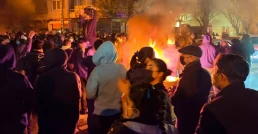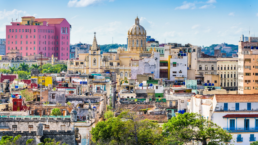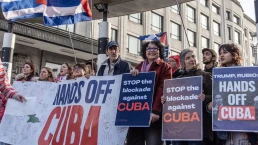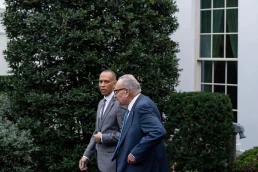Trump has claimed that all sides agreed to his peace plan, but Hamas only agreed to the first stage of it, which involved returning the remaining Israeli prisoners in Gaza to Israel under a permanent ceasefire and resumption of humanitarian aid that Israel has still not complied with.
By Medea Benjamin and Nicolas J. S. Davies
On November 17th, 2025, the UN Security Council passed a resolution to endorse President Trump’s plan for Gaza, including a transitional government headed by Trump himself and an International Stabilization Force (ISF) that is expected, among other tasks, to disarm Hamas, a task that Israel has failed to do through two years of genocide and mass destruction.
The ISF will be tasked with securing the borders in a way that confines Palestinians, stabilizing Gaza’s security environment by suppressing resistance, demilitarizing Gaza while leaving the Israeli regime untouched, and training the Palestinian police to control the population. Yes, the force is also mandated to “protect civilians” and assist humanitarian aid. But under U.S. supervision, can anyone honestly expect it to restrain Israel when Israel simply refuses to comply—as we see with the current so-called “ceasefire”?
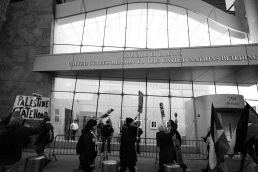
Hamas and other factions in Gaza have issued a joint statement that unequivocally rejects Trump’s plan and the Security Council resolution, saying it “will turn into a type of imposed guardianship or administration – reproducing a reality that restricts the Palestinian people’s right to self-determination and to managing their own affairs.”
As for the foreign military force, the Hamas statement says, “Assigning the international force with tasks and roles inside the Gaza Strip, including disarming the resistance, strips it of its neutrality, and turns it into a party to the conflict in favor of the occupation.”
The joint statement reserves its strongest condemnation for the Arab rulers who support Trump’s plan, calling their support “a form of deep international partnership in the war of extermination waged by the occupation against our people.”
Trump has claimed that all sides agreed to his peace plan, but Hamas only agreed to the first stage of it, which involved returning the remaining Israeli prisoners in Gaza to Israel under a permanent ceasefire and resumption of humanitarian aid that Israel has still not complied with.
Hamas always said clearly that it has no authority to negotiate over other parts of Trump’s plan, since they involve the future government of all of Palestine and require the input of many different groups in Gaza and the other occupied territories. Hamas said it would only disarm once a Palestinian state is fully established, at which time it will hand over its weapons to the new armed forces of the state of Palestine.
In October, a number of countries told U.S. officials that they would consider sending their troops to participate in the proposed International Stabilization Force in Gaza. They included Egypt, Indonesia, Azerbaijan, Turkey, Malaysia and Pakistan, as well as Australia, Canada and Cypru
On the other hand, Jordan, Qatar and Saudi Arabia have all rejected sending troops to join the ISF. Azerbaijan has said it could only send troops once all fighting has ended, and Egypt has flip-flopped on taking part. As it became clear that Trump and his “peace board” might order the ISF to use force to disarm Hamas fighters, the UAE said its forces would not take part either.
In fact, not a single country has so far committed to join the force, while Israel has said it would not allow Turkish forces to enter Gaza, and claims the right to approve or refuse any country’s participation. Israel has also been escalating its ceasefire violations since the Security Council resolution was passed, a sure way to deter countries from joining the ISF.
Hamas and the resistance groups are not alone in rejecting Trump’s plan. Al Jazeera asked people in Gaza City for comments, and they were just as critical. “I completely reject this decision,” said Moamen Abdul-Malek. “Our people … are able to rule ourselves. We don’t need forces from Arab or foreign countries to rule us. We are the people of this country, and we will bear responsibility for it.”
Another man in Gaza City told Al Jazeera that the plan violates the Palestinians’ right to armed resistance. “It would strip the resistance of its weapons,” said Mohammed Hamdan, “despite the fact that resistance is a legitimate right of peoples under occupation.”
And Sanaa Mahmoud Kaheel said she doesn’t trust Trump, who previously threatened to ethnically cleanse Gaza and steal its land to build a U.S.-Israeli beach resort. “Things will be unclear with the international forces, and we do not know what might happen tomorrow or the day after tomorrow with them being in Gaza,” she said. “This could help Trump tighten his grip on Gaza and work towards establishing a ‘riviera’ there, as he himself said before. Nothing is guaranteed.”
The Palestine Institute for Public Diplomacy (PIPD), based in Al-Bireh in the West Bank, rejects the false choice that the United States has presented to the world: “either accept their plan with all its flaws and non-guarantees, or accept going back to a live-streamed genocide.”
Instead, PIPD and the global Palestinian solidarity movement are working to end the Israeli occupation and the impunity that sustains it, and to hold Israel accountable for its illegal occupation and crimes against humanity. On its Global Accountability Map, PIPD charts the progress of “concrete and approved actions by governments, local authorities, civil society, the private sector, courts and academia to hold Israeli colonial entities and interests accountable.
More and more of the world is supporting the Palestinian struggle and the movement to hold Israel accountable for its decades of illegal occupation and ever-escalating international crimes. While the U.S. uses its veto to corrupt the UN Security Council, people and governments have come together to hold Israel accountable in the UN General Assembly, the International Court of Justice (ICJ) and the International Criminal Court (ICC).
Instead of passively accepting subservience to the Security Council, the General Assembly asked the ICJ to rule on the legality of the Israeli occupation and its legal consequences, and the ICJ ruled in 2024 that the occupation is illegal and must therefore be ended as quickly as possible.
Instead of making further demands on the occupation’s long-suffering victims, as the U.S.-controlled Security Council does in its Trump plan resolution, the ICJ and the General Assembly have flipped the U.S. script to make demands on the perpetrator, Israel, including the demand, in September 2024, that Israel must end the occupation within a year.
The ICJ issued a new ruling on October 22, 2025, that Israel must allow all humanitarian aid into Gaza and allow UNRWA (UN Relief & Works Agency) to reenter Gaza and do its work there without obstruction.
The UN General Assembly can and should respond to Israel’s failure to comply with any of these rulings and resolutions by meeting in an Emergency Special Session to organize a UN-backed arms embargo, trade boycott and other steps to enforce them, until Israel ends its illegal occupation and starts complying with international law and UN resolutions.
More and more countries are cutting trade and military ties with Israel, and 157 countries now recognize Palestine as an independent nation with the same rights as others. People in many countries are rising up to protest Israel’s genocide and occupation, and to boycott Israeli products and companies that are complicit in its crimes.
The Israeli and U.S. governments are feeling the pinch. If the world was passively accepting Israel’s genocide in Gaza, Trump would not have felt compelled to conjure up his fake peace plan. It is a victory for people of conscience everywhere that he felt he had to try to change the narrative. So this is not the time to give up on the real solutions to this crisis: justice and freedom for Palestine, and accountability for Israel.
We shall see in the coming days whether the corrupt governments that hope to profit from the genocide in Gaza will send their own troops to fight the Palestinian Resistance and perpetuate the Israeli occupation. Are they really ready to sacrifice their own young people’s blood to mix with the blood of innocent Palestinians in the rubble of Gaza?
We hope that they will instead make common cause with the people of Gaza and insist that Israel must comply with the demands of the ICJ and the UN General Assembly and immediately end its obscene, decades-long, illegal occupation of Palestine.
Medea Benjamin and Nicolas J. S. Davies are the authors of War In Ukraine: Making Sense of a Senseless Conflict, now in a revised, updated 2nd edition.
Medea Benjamin is the cofounder of CODEPINK for Peace, and the author of several books, including Inside Iran: The Real History and Politics of the Islamic Republic of Iran.
Nicolas J. S. Davies is an independent journalist, a researcher for CODEPINK and the author of Blood on Our Hands: The American Invasion and Destruction of Iraq.
Recent Posts
Leading Papers Call For Destroying Iran To Save It
February 11, 2026
Take Action Now The opinion pages of the New York Times and Washington Post are offering facile humanitarian arguments for the US to escalate its…
Despite Marco Rubio’s Warnings, This is the Time to Go to Cuba in Solidarity Against the Latest U.S. Aggressions
February 10, 2026
Take Action Now When visiting Cuba, one can see quickly the terrible effects of the almost seven decades of the U.S. economic blockade of Cuba.By…
“Hands Off Cuba!”: Left Groups in Europe Mobilize Against U.S. Aggression
February 10, 2026
Take Action Now Hundreds demonstrated in Belgium in solidarity with Cuba as further mobilizations against US imperialism are planned across Europe.……
Democrats Propose Minor Reforms for ICE — and Record Funding
February 10, 2026
Take Action Now Congressional Democratic leaders are asking ICE to agree to reforms, promising to vote for $11 billion in funding for the agency if…

